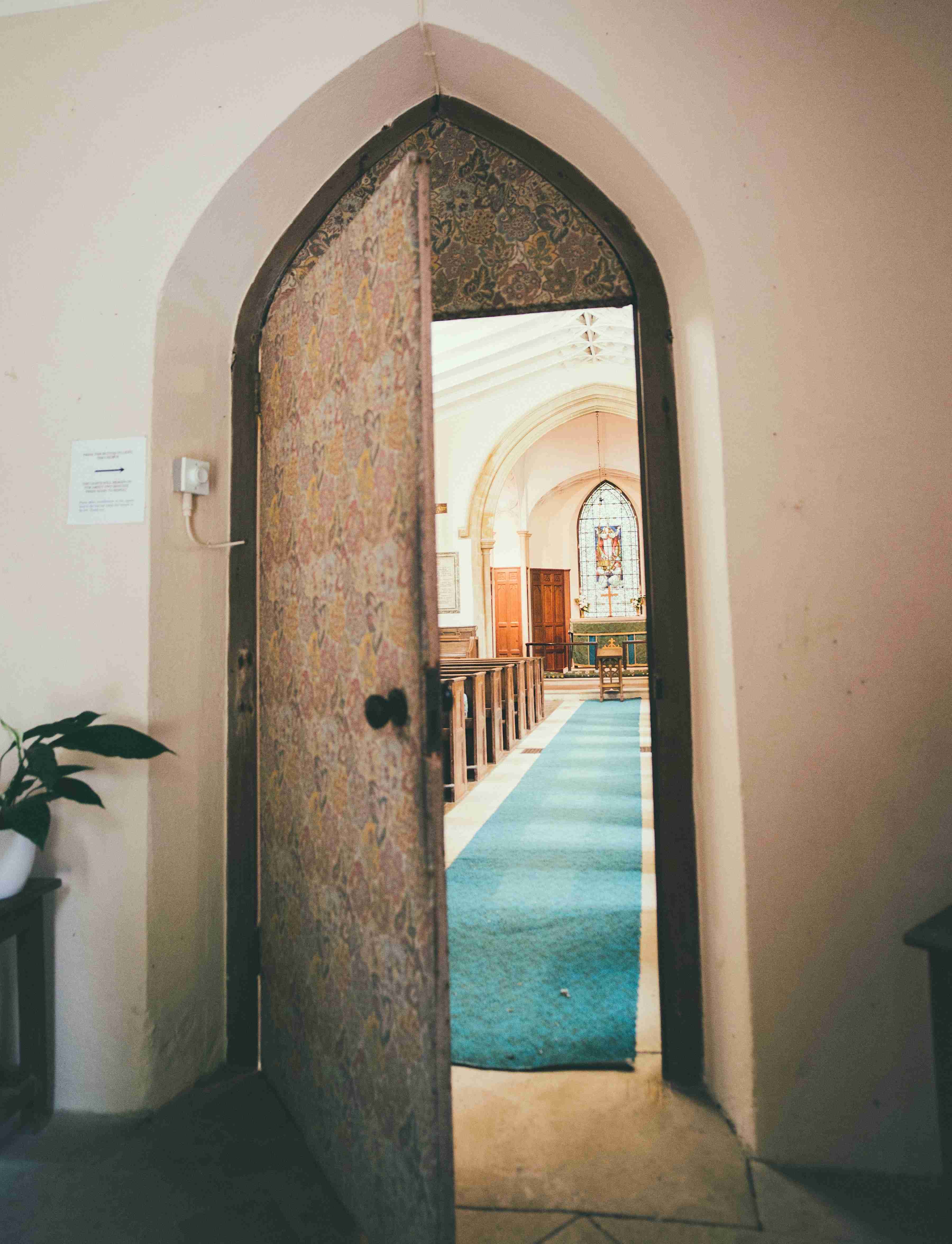SYSTEMATIC THEOLOGIES: A LIST I put together the following list, using the 10th edition of John Glynn’s Commentary and Reference Survey (Kegel, 2007) as a starting point.
I’ll be updating this list in the future, but I could use your help. If there’s something that needs included, please let me know in the comments!
Systematic Theologies Barth, Karl. Church Dogmatics, 5 vols. In 14 parts. (T&T Clark, [1932–1967] 1936–1969). Bavinck, Herman. Reformed Dogmatics, ed. John Bolt (Baker, 2003-). Berkhof, Louis. Combined Systematic Theology, 4th ed. (Eerdmans, 1939) and Berkhof, Louis. Systematic Theology (Eerdmans, 1996). Berkouwer, G. Studies in Dogmatics, 14 vols. (Eerdmans, 1952-76). Bird, Michael F. Evangelical Theology: A Biblical and Systematic Introduction. (Zondervan, 2013). Bloesch, Donald. Christian Foundations, 7 vols. (IVP, 1992-). Bray, Gerald. God Is Love: A Biblical and Systematic Theology. (Crossway, 2012). Buswell, James. A Systematic Theology of the Christian Religion, 2 vols. (Zondervan, 1962-63). Calvin, John. Institutes of the Christian Religion, 2 vols. (Westminster John Knox, 1960). Chafer, Lewis. Systematic Theology, 4 vols. (Kregel, 1993). Unabridged. Coakley, Sarah. God, Sexuality, and the Self: An Essay ‘On the Trinity.’ (Cambridge University Press, 2013) Volume 1 of a 4-volume systematic theology. Culver, Robert. Systematic Theology (Christian Focus, 2005). Dulles, Avery. The Craft of Theology (Crossroad, 1992). Erickson, Millard. Christian Theology, 2d ed. (Baker, 1998). Finger, Thomas. A Contemporary Anabaptist Theology (IVP, 2004). Finger, Thomas. Christian Theology, 2 vols. (Herald, 1985, 1989). Frame, John. Systematic Theology: An Introduction to Christian Belief. (P&R, 2013). Fries, Heinrich. Fundamental Theology (Catholic University of America, 1996). Garrett, James. Systematic Theology, 1 vols. (Eerdmans, 1990, 1995). Geisler, Norman. Systematic Theology, 4 vols. (Bethany House, 2002-). Arminian. Gerrish, B.A. Christian Faith: Dogmatics in Outline. (Westminster John Knox, 2015). Grenz, Stanley. Theology for the Community of God (Eerdmans, 2000). Grider, J. Kenneth. A Wesleyan-Holiness Theology. (Beacon Hill, 1994). Grudem, Wayne. Systematic Theology (Zondervan, 1994). Calvinistic charismatic. Gunton, Colin. The Christian Faith (Blackwell, 2001). Introduction. Guthrie, Shirley C., Jr. Christian Doctrine. (WJK, 1994). Revised edition. Henry, Carl. God, Revelation, and Authority, 6 vols. (Word, 1976-83; Crossway, 1999). Hodge, Charles. Systematic Theology, 3 vols. (Hendrickson, 1997). Hodge, Charles. Systematic Theology, abridged 1-vol. ed. (Presbyterian & Reformed, 1997). Horton, Michael. The Christian Faith. (Zondervan, 2011). Horton, Stanley, ed. Systematic Theology, rev. ed. (Logion, 1995). Pentecostal. Jenson, Robert. Systematic Theology, 2 vols. (Oxford University Press, 1997-99). Kärkkäinen, Veli-Matti. A Constructive Christian Theology for the Pluralistic World, 5 vols. (Eerdmans, 2013-17). Küng, Hans. Christianity (Continuum, 1995). Lewis, Gordon, and Bruce Demarest. Integrative Theology (Zondervan, 1987-94). Three volumes in one. McClendon, James. Systematic Theology, 3 vols. (Abingdon, 2002, 1986-2000). Anabaptist. McGrath, Alister. Christian Theology, 3d ed. (Blackwell, 2001). McKim, Donald. Introducing the Reformed Faith (Westminster John Knox, 2001). Menzies, William, and Stanley Horton. Bible Doctrines (Logion, 1993). Pentecostal. Oden, Thomas. Systematic Theology, 3 vols. (Harper, 1987-92; Prince, 2000). Methodist. Olson, Roger. Arminian Theology (IVP, 2006). Olson, Roger. The Mosaic of Christian Belief (IVP, 2002) . Pannenberg, Wolfhart. Systematic Theology, 3 vols. (Eerdmans, 1991,1994, 1997). Rahner, Karl. Foundations of Christian Faith (Seabury, 1978). Idealist Christology. Rahner, Karl. Theological Investigations, 23 vols. (Helicon/Herder and Herder/Seabury/Crossroad, 1961-92). Ratzinger, John. Principles of Catholic Theology (Ignatius, 1987). Rausch, Thomas P. Systematic Theology: A Roman Catholic Approach. (Liturgical Press, 2016). Reymond, Robert. A New Systematic Theology of the Christian Faith (Thomas Nelson, 1998). Reformed introduction. Shedd, William. Dogmatic Theology, 3d ed. (Presbyterian & Reformed, 2003). Sonderegger, Katherine. Systematic Theology, 3 vols. (Fortress, 2015-). Strong, Augustus. Systematic Theology (Judson, 1907). Tanner, Kathryn. Jesus, Humanity and the Trinity: A Brief Systematic Theology. (Fortress, 2001). Thiessen, Henry. Lectures in Systematic Theology, rev. ed. (Eerdmans, 1977). Thiselton, Anthony C. Systematic Theology. (Eerdmans, 2015). Tillich, Paul. Systematic Theology, 3 vols. (University of Chicago, 1963). Turretin, Francis. Institutes of Elenctic Theology, 3 vols. (P&R, [1679–85] 1997). van der Kooi, Cornelis, and Gijsbert van den Brink. Christian Dogmatics: An Introduction. (Eerdmans, 2017). Translation of 2012 Dutch original. Vos, Geerhardus J. Reformed Dogmatics, 5 vols. (Lexham, 2014-16). Wiley, H. Orton. Christian Theology, 3 vols. (Nazarene Publishing, 1940-43). Arminian perspective. Williams, Rodman. Renewal Theology (Zondervan, 1992). Three volumes in one, Pentecostal. Handbooks, Introductions, and Edited Volumes Allen, Michael, and Scott R. Swain, eds. Christian Dogmatics: Reformed Theology for the Church Catholic. (Baker Academic, 2016). Beinert, Wolfgang, and Francis Schussler Fiorenza, eds. Handbook of Catholic Theology (Crossroad, 1995). Berkhof, Louis. Introduction to Systematic Theology (Eerdmans, 1932; Baker, 1979). Enns, Paul. Moody Handbook of Theology (Moody, 1989). Erickson, Millard. Introducing Christian Doctrine, 2d ed., cd. Arnold Hustad (Baker, 2001). Abridgement of Christian Theology. Grudem, Wayne. Bible Doctrine (Zondervan, 1999). Abridgement of Systematic Theology. Hanson, Paul. Introduction to Christian Theology (Fortress, 1997). Horton, Michael. Pilgrim Theology. (Zondervan, 2013). Distillation of Horton’s Christian Faith. Jones, Beth Felker. Practicing Christian Doctrine. (Baker Academic, 2014). Komanchak, Joseph, Mary Collins, and Dermot Lane, eds. The New Dictionary of Theology (Liturgical, 1987). Latourelle, Rene, and Rino Fisichella, eds. Dictionary of Fundamental Theology (Crossroad, 1994). MacArthur, Biblical Doctrine: A Systematic Summary of Bible Truth. (Crossway, 2017). McGrath, Alister. ed. The Christian Theology Reader, 2d cd. (Blackwell, 2001). McGrath, Alister. Studies in Doctrine (Zondervan, 1997). Four volumes in one. Migliore, Daniel. Faith Seeking Understanding. (Eerdmans, 1991, 2004, 2014). Miller, Ed, and Stanley Grenz, eds. Fortress Introduction to Contemporary Theologies (Fortress, 1998). Plantinga, Richard J., Thomas R. Thompson, and Matthew D. Lundberg. An Introduction to Christian Theology. (Cambridge University Press, 2010). Ryrie, Charles C. Basic Theology: A Popular Systematic Guide to Understanding Biblical Truth. (Moody, [1986] 1999). Sawyer, James. The Survivor’s Guide to Theology (Zondervan, 2002). Introduction. Schussler Fiorenza, Francis, and John Galvin, eds. Systematic Theology, 2 vols. (Fortress, 1991). Stuhlmueller, Carroll, ed. The Collegeville Dictionary of Biblical Theology (Liturgical, 1996). Thorsen, Don. An Exploration of Christian Theology. (Hendrickson, 2008). Special Studies Brown, Raymond E., Karl Donfried, Joseph Fitzmyer, and John Reumann. Mary in the New Testament (Fortress/Paulist, 1978). Chauvet, Louis-Marie. The Sacraments (Liturgical, 2001). Collinge, William. The A to Z of Catholicism (Scarecrow, 2001). Congar, Yves. Diversity and Communion (23rd Community, 1985). Congdon, David. The God Who Saves: A Dogmatic Sketch. (Cascade, 2016). de Lubac, Henri. The Sources of Revelation (Crossroad, 2000). Dulles, Avery. The Assurance of Things Hoped For (Oxford University Press, 1994). Forlines, Leroy. The Quest for Truth (Randall House, 2001). Non-Wesleyan Arminian position. Grenz, Stanley. Renewing the Center (Baker, 2000). Grenz, Stanley. The Named God and the Question of Being (Westminster John Knox, 2005). Grenz, Stanley. The Social God and the Question of Being (Westminster John Knox, 2001). Kaspar, Walter. The God of Jesus Christ (Crossroad, 1984). Idealist Christology. Kaspar, Walter. Theology and Church II (Herder and Herder, 2001). Küng, Hans. Infallible? 2d ed. (Continuum, 1994). Livermore, Paul, Donald Bastien, and Thomas Oden. The God of Our Salvation (Light and Life Communications, 1995). Wesleyan. O’Collins, Gerald. Christology (Oxford University Press, 1995). Peters, Ted. God: The World’s Future, 2d ed. (Fortress, 2000). Postmodern. Ratzinger, John. In the Beginning (Eerdmans, 1995). Richard, Lucien. Christ: The Self-Emptying of God (Paulist, 1997). Kenosis. Schillebeeckx, Edward. Christ (Crossroad, 1980). Schillebeeckx, Edward. Church (Crossroad, 1990). Tracy, David. Plurality and Ambiguity (Harper, 1987). Van Beeck, Frans. God Encountered, 6 vols. (Liturgical, 1993-). Von Balthasar, Hans Urs. Mysterium Paschale (T & T dark, 1990). Warfield, Benjamin. Works, 10 vols. (Baker, 1991).




